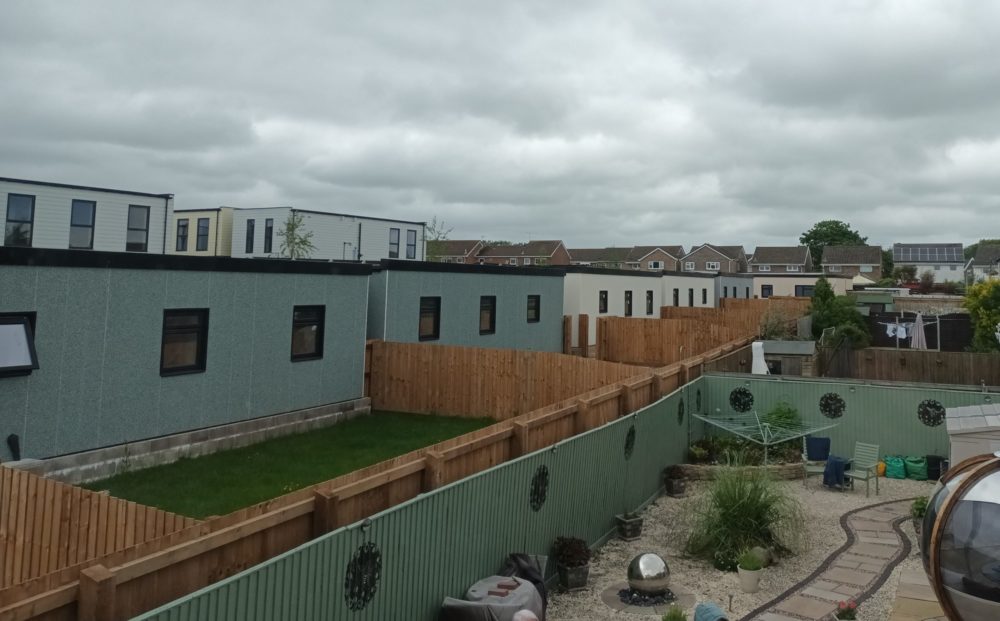FOI reveals councillor withheld details on emergency housing plans

Councillor under scrutiny as emergency housing plans for former school site reveal controversial decision-making process.
A recent Vale of Glamorgan Council decision to use the former Eagleswell Primary School site in Llantwit Major for emergency housing has sparked controversy, raising concerns about transparency and community consultation.
The plan, which involves the placement of 90 temporary modular homes on the site, was initially approved without planning permission through special planning powers. The subsequent approval of the development has left residents questioning the Council’s decision-making process and the handling of the site’s transformation.
Background
The site of the former Eagleswell Primary School was identified for potential housing development under the Local Development Plan (LDP), but its recent transformation into temporary modular homes has prompted significant debate.
The Council utilised permitted development rights, a process allowing certain developments to proceed without formal planning permission.
This approach is typically reserved for emergencies, such as housing Ukrainian refugees, which is part of the broader Homes for Ukraine Sponsorship Scheme.
However, a legal framework requires that such developments gain formal planning permission within 12 months of construction. In July 2024, the Council’s planning committee officially approved the use of the Eagleswell site for at least five more years, despite concerns from local residents.
Transparency
At the heart of the controversy is the email trail obtained by campaigners via a Freedom of Information (FOI) request, showing that Llantwit Major Councillor Gwyn John delayed informing residents about the plans.
In November 2022, Cllr John acknowledged that work had already begun at the site, with locals starting to question the activities. However, he chose to withhold information, explaining that no final decision had been made at the time.
In response to public criticism, Cllr John defended his decision, stating that it was premature to notify residents without concrete information, also emphasising that once the Welsh Government approved the necessary funding, residents in proximity to the site were informed about the scheme’s details.
However, for many, this communication came too late, leaving residents feeling excluded from a process that directly impacted them.
Concerns
One of the most significant issues raised by residents living near the Eagleswell site was the lack of consultation over the design of the modular homes. Some units are located just metres from residents’ gardens, with their interiors visible from neighbouring homes.
This has led to complaints about the invasion of privacy and the broader impact of the development on the local area.
In response, campaigners initiated a legal challenge against Vale of Glamorgan Council earlier this year.
They argued that the Council should have engaged more thoroughly with local residents and taken their concerns into account before proceeding with the development. The outcome of this legal action remains to be seen.

Parking
Another area of contention revolves around the provision of parking at the Eagleswell site. Internal Council emails revealed concerns from senior planners about the limited number of parking spaces provided for the 90 modular units.
Initially, just 20 spaces were proposed, which was seen as insufficient given that the site could remain in use for several years.
In response to these concerns, the number of parking spaces was increased to 45, one space for every two units, with five additional visitor spaces. While this adjustment improved the situation, some planners remained uneasy about the potential overspill of vehicles onto nearby Eagleswell Road.
Furthermore, there was uncertainty over whether future occupants, such as Ukrainian refugees, would require more parking as their time in the community extended.
Council
Throughout the controversy, the Vale of Glamorgan Council has defended its handling of the Eagleswell development.
A spokesperson for the Council stated that extensive efforts were made to engage with the community, including press releases, social media updates, and in-person events. However, they maintained that details of the development could only be shared once the plans were finalised.
The Council also highlighted its statutory responsibility to resettle displaced Ukrainian families, noting that many of the refugees who would be moving into the modular homes did not own cars, given the circumstances under which they fled their country.
The Council also argued that the level of parking provided was appropriate and aligned with the sustainable nature of the site’s location.
As the legal battle unfolds, it remains to be seen whether the concerns of the local community will influence future developments in Llantwit Major.
Support our Nation today
For the price of a cup of coffee a month you can help us create an independent, not-for-profit, national news service for the people of Wales, by the people of Wales.





The Gunning Principles appear to have been another casualty of “the war”.